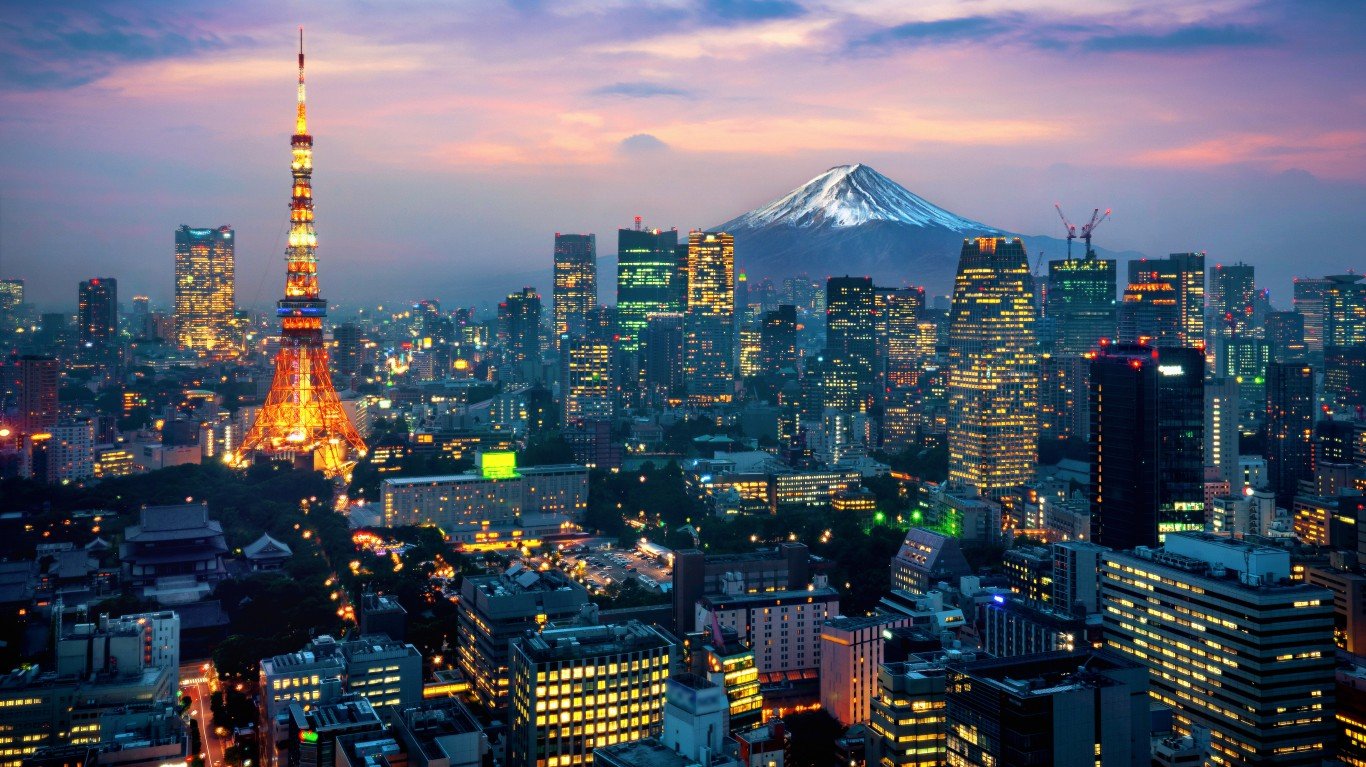

Japan’s Nikkei 225 stock average closed at a 33-year high on Friday, reaching levels last seen over three decades ago. The index, which has risen 18% this year, saw particular investment from foreign buyers, who purchased a net of $15.6 billion in shares last month.
Japan Sees Sharp Spike in Foreign Investment
Throughout April, foreign investors purchased a net $15.6 billion worth of Japanese shares, the highest monthly level in several years, according to data from the Japan Exchange Group. The data showed they have continued to add to their positions in May.
The primary driving force behind the recent rally is a judgment that Japan is cheap. “This market has just been long, long overlooked,” Kei Okamura, a Japanese equities portfolio manager at Neuberger Berman, told the WSJ. “It’s a very long taxi runway, but when the plane takes off, it takes off.”
Economically, Japan is finally seeing signs of lasting inflation after decades of deflation and anemic economic growth. In April, Japanese consumer prices rose 3.5% from a year earlier, a welcome sign for the country.
Moreover, despite its low-interest rates, the country’s central bank has not expressed interest in raising them. This has caused Japan’s currency to experience a decline in value over the past few years, benefiting exporting companies, such as carmakers, by increasing their competitiveness through a weakened yen.
Politically, Japan has also been relatively stable in recent years. Furthermore, the country has long been one of the United States’ closest allies in the Asia-Pacific region. The two countries share a deep economic and cultural relationship and a military alliance dating back to the Cold War.
Investors Flock to Japan after Buffet Reveals Investment
Warren Buffett, the Chairman of Berkshire Hathaway, declared last month that he possessed more stocks in Japan than any other country apart from the US. Almost three years ago, Berkshire purchased shares in all five of Japan’s biggest trading houses and recently expanded each stake to 7.4%.
The blue-chip shares driving up the Nikkei average are largely tech-focused. Fast fashion brand Uniqlo’s operator Fast Retailing and robot manufacturer Fanuc ended the day 2.2% higher.
On Friday, the Nikkei average surged from 30,847.36 to a daily high of 30,924.57. Over the last six days, the average has constantly risen, surpassing the 30,000 level on Wednesday. This bullish trend has propelled the Nikkei average beyond its value at the time of the collapse of the bubble economy.
In December 1989, during the height of the economic boom, the benchmark stock average in Japan hit an unprecedented pinnacle of 38,915.87 before abruptly crashing back down. The average reached its lowest point post-bubble at 7,054.98 in March 2009, during the global recession initiated by the Lehman Brothers’ downfall in 2008.
Japanese companies are attracting attention from foreign investors by improving shareholder returns and announcing reform plans, according to Kazunori Tatebe, the Japan equity strategist at Goldman Sachs. Tatebe said he expects “the U.S. economy will be able to avoid going into recession and having negative impacts on the Japanese stock market.”
This article originally appeared on The Tokenist
Take This Retirement Quiz To Get Matched With A Financial Advisor (Sponsored)
Take the quiz below to get matched with a financial advisor today.
Each advisor has been vetted by SmartAsset and is held to a fiduciary standard to act in your best interests.
Here’s how it works:
1. Answer SmartAsset advisor match quiz
2. Review your pre-screened matches at your leisure. Check out the advisors’ profiles.
3. Speak with advisors at no cost to you. Have an introductory call on the phone or introduction in person and choose whom to work with in the future
Take the retirement quiz right here.
Thank you for reading! Have some feedback for us?
Contact the 24/7 Wall St. editorial team.



